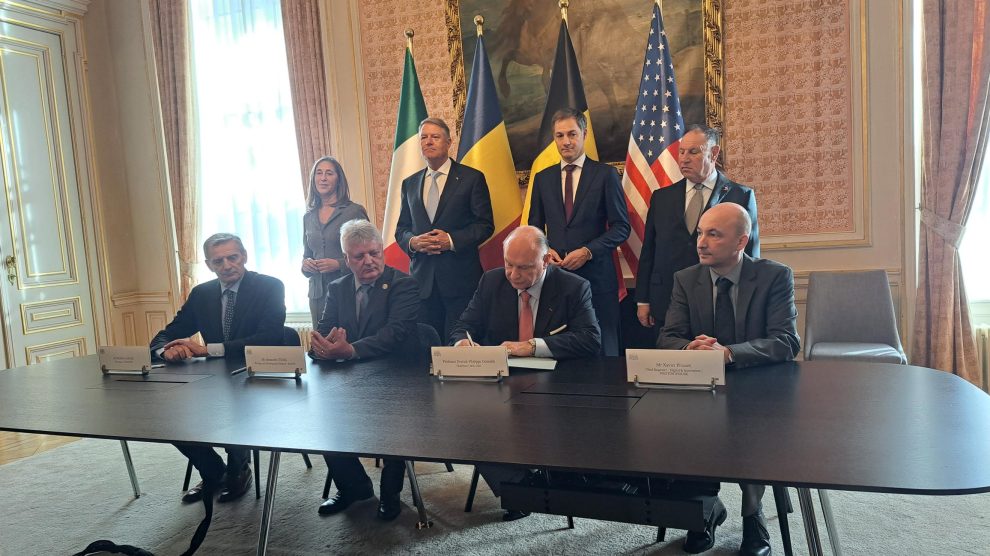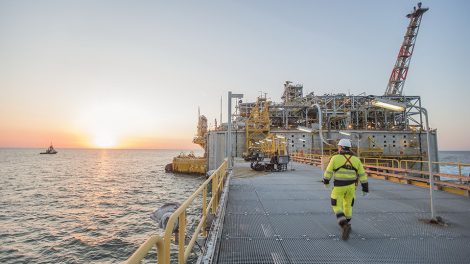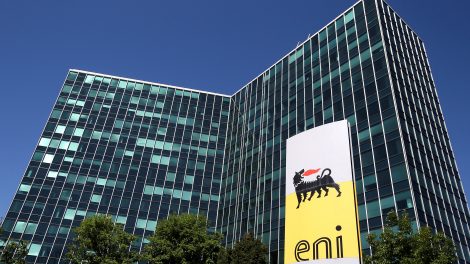The birth of a new SMR alliance. On Wednesday, five leading entities in the field of nuclear power signed a memorandum of understanding to cooperate in speeding up the development of fourth-generation reactors. Specifically, they intend to leverage their advanced expertise to build two demonstrative lead-cooled small modular reactors (SMRs), one of the most promising technological solutions in the field of clean energy.
It’s international – and Transatlantic. Italy’s in it through Enea and Ansaldo Nucleare – the public research agency for new technologies and energy and a leading Italian energy company, respectively. The other members are US industrial titan Westinghouse and two other prestigious research and development centres: RATEN, the Romanian state-owned nuclear energy technology company, and SCK CEN, among the most important research institutes in Belgium.
- The memorandum was signed in the presence of Belgian Prime Minister Alexander De Croo, Romanian President Klaus Iohannis and representatives of the Italian and US embassies.
Why these reactors? Lead-cooled reactors promise, among other things, much safer and more efficient management than their water-based equivalents, as well as the possibility of reusing the latter’s waste as fuel. SMRs are pitched as a better solution than third-generation reactors as their smaller scale would make them faster and cheaper to build and grant extra flexibility in their deployment.
- Enea, RATEN and SCK CEN are pioneers in the field of lead-cooled reactors, while Westinghouse and Ansaldo (which also joined forces with Edison and Edf to build SMRs back in March) will provide their proven expertise in the design, licensing, construction and marketing of nuclear power plants.
The road ahead. The alliance aims to develop these reactors to facilitate the deployment of sustainable nuclear energy on a commercial scale. They intend to build the first demonstrative reactor (based on a Westinghouse design) in Mol, Belgium. The second one, in Pitești, Romania, will be built in parallel to study the technical and economic feasibility of future commercial SMRs.
- The challenge is complex, both technically and economically. In the same hours as the announcement was made, US-based NuScale cancelled its plan to build the first SMR reactor on American soil (the drop in renewable prices proved the last straw).
From laggards to leaders. The push to build these next-generation reactors unites two unlikely countries – Italy, a country historically averse to nuclear power, and Belgium, which until recently wanted to dismantle its power plants. But the world has changed, especially since Russia’s energy war against Europe, recalled the Belgian PM: Brussels decided to embrace SMRs and finance research to the tune of €100 million euros shortly after the Russian invasion of Ukraine.
- In Italy, the government is displaying strong support for nuclear power amid growing popular support. Institutions and stakeholders are working on releasing a national nuclear energy plan in 2024, where – as ministers Matteo Salvini, Gilberto Pichetto and Adolfo Urso anticipated – fourth-generation reactors will play a prominent role.
Looking even further: Also on Wednesday, the US and UK struck a “major new partnership” for fusion power development, which will entail scientists from both sides of the pond working together on R&D and sharing knowledge and access to facilities to make fusion commercially viable. There’s a bit of Italy in this deal, too: Italian energy major Eni controls US-based Commonwealth Fusion Systems, which is leading the race to the holy grail of energy.




